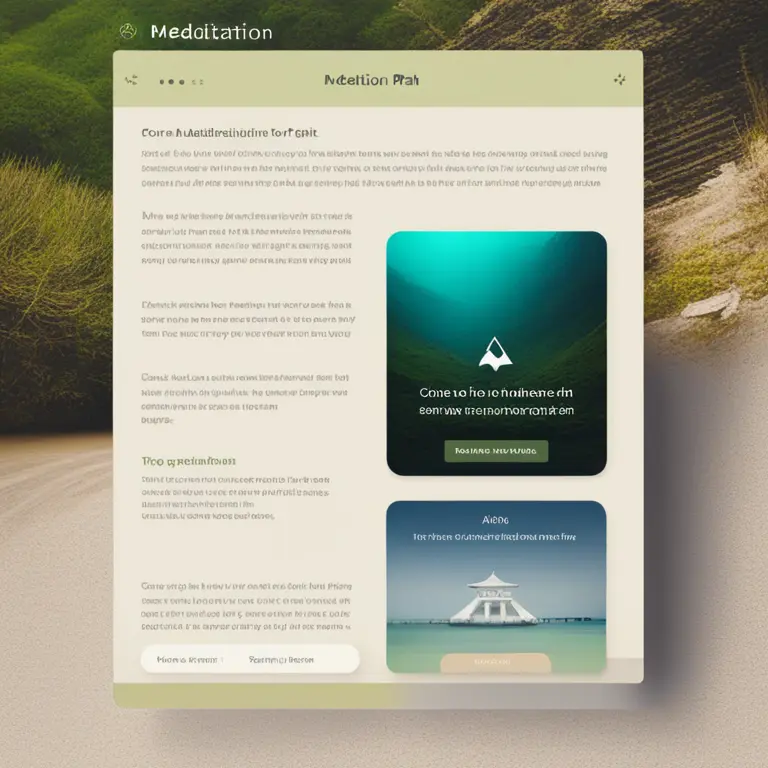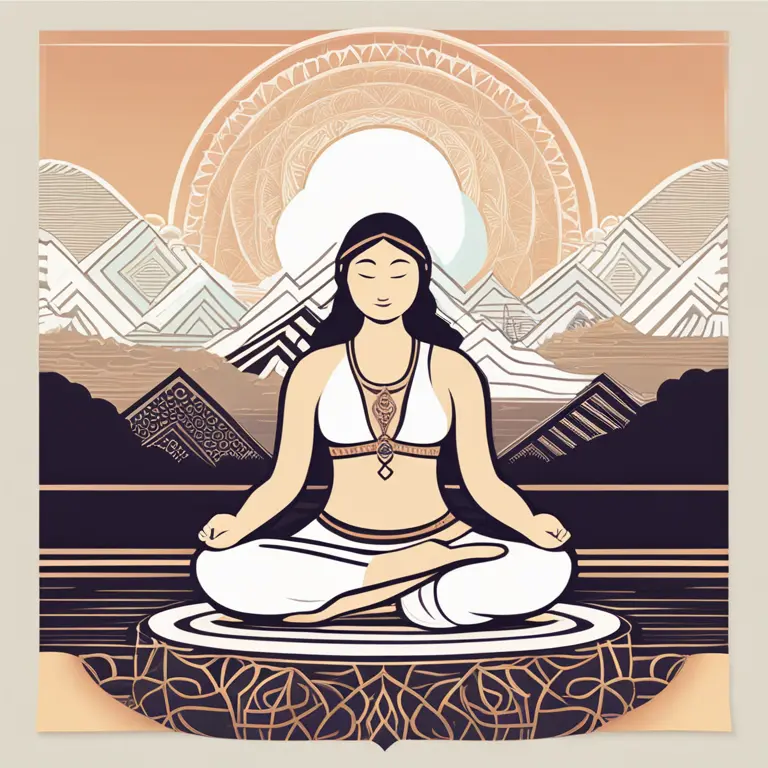
Optimal Meditation Styles for Personal Growth
Explore the various meditation techniques to find the best fit for personal growth and spiritual alignment in this article.
article by Hina Kurosawa
Selecting Your Meditation Path
Meditation is an ancient practice that aligns mind, body, and spirit, fostering a state of deep peace and psychological balance. As we journey through 2024, the quest for personal growth has led many to embrace meditation's transformative powers. However, with so many styles available, it can be daunting to determine which form is the ideal match for your needs. Whether you are a seasoned practitioner or new to the art, understanding the characteristics of different meditation types is the first step to unlocking your potential.

Vipassana: Insight Meditation
Vipassana, often referred to as insight meditation, is rooted in Buddhist tradition and focuses on deep, introspective awareness. This practice involves observing thoughts and emotions without attachment, leading to intense self-awareness and clarity. Through Vipassana, one aims to see the nature of reality, ultimately achieving spiritual enlightenment. Ideal for individuals yearning for a profound self-discovery process, this meditation can produce life-altering insights and tranquility.

Zen Meditation: The Art of Simplicity
Zen meditation, or Zazen, is at the heart of Zen Buddhism, emphasizing the art of 'just sitting.' This technique requires a practitioner to sit in a comfortable position, focusing solely on the breath and allowing thoughts to pass by without engagement. It's a path that nurtures mindfulness, discipline, and the ability to find calm within chaos. Zen meditation suits those seeking simplicity in practice and refinement in their mental focus.

Transcendental Meditation: Effortless Transcending
Transcendental Meditation (TM) is a simple, yet profound method that involves the silent repetition of a personalized mantra. The technique promotes a state of relaxed awareness, leading the meditator to transcend to deeper levels of consciousness. TM has been associated with numerous health benefits, such as reduced stress and enhanced cognitive function. This form is perfect for individuals looking for a structured and scientifically validated meditation journey.

Guided Visualization: A Journey Within
Guided visualization is a technique that relies on the imagination to lead one on a calming journey. The meditator listens to a narrator who paints a vivid picture meant to engage the senses and promote a state of relaxation and clarity. This type of meditation is particularly useful for those who find comfort in guidance and are looking to alleviate stress or manifest specific life goals.
Yoga Meditation: Union of Movement and Breath
Yoga meditation combines physical postures, controlled breathing, and focus to enhance spiritual connection and mental resilience. Through diverse forms like Kundalini, Hatha, or Raja Yoga, practitioners find unity between movement and meditation. This holistic approach is beneficial for those who prefer an active meditation style that also promotes physical wellness.
Tailoring Meditation to Your Life
Choosing the best meditation technique is a personal journey that should take into account your lifestyle, goals, and comfort level. Consider sampling several styles through classes, apps, or online resources to find your fit. Remember that flexibility is key; what works for you today may evolve as your practice deepens over time. Trust in the process, and the right method will reveal itself, enhancing your path to personal growth.
Published: 1/24/2024
Modified: 1/24/2024
More predictions
Come back here soon to learn more about yourself and your future


Effective Meditation for Contemporary Life
Discover the meditation methods that best suit the fast pace of contemporary life and how they enhance mental and emotional well-being.


Soothing Sleep: Meditation for Restful Nights
Discover effective meditation practices to enhance sleep quality and embrace restfulness in this insightful article.


Meditation Techniques for Individuals With ADHD
Discover effective meditation practices tailored for individuals with ADHD to improve focus, reduce hyperactivity, and foster a sense of calm.